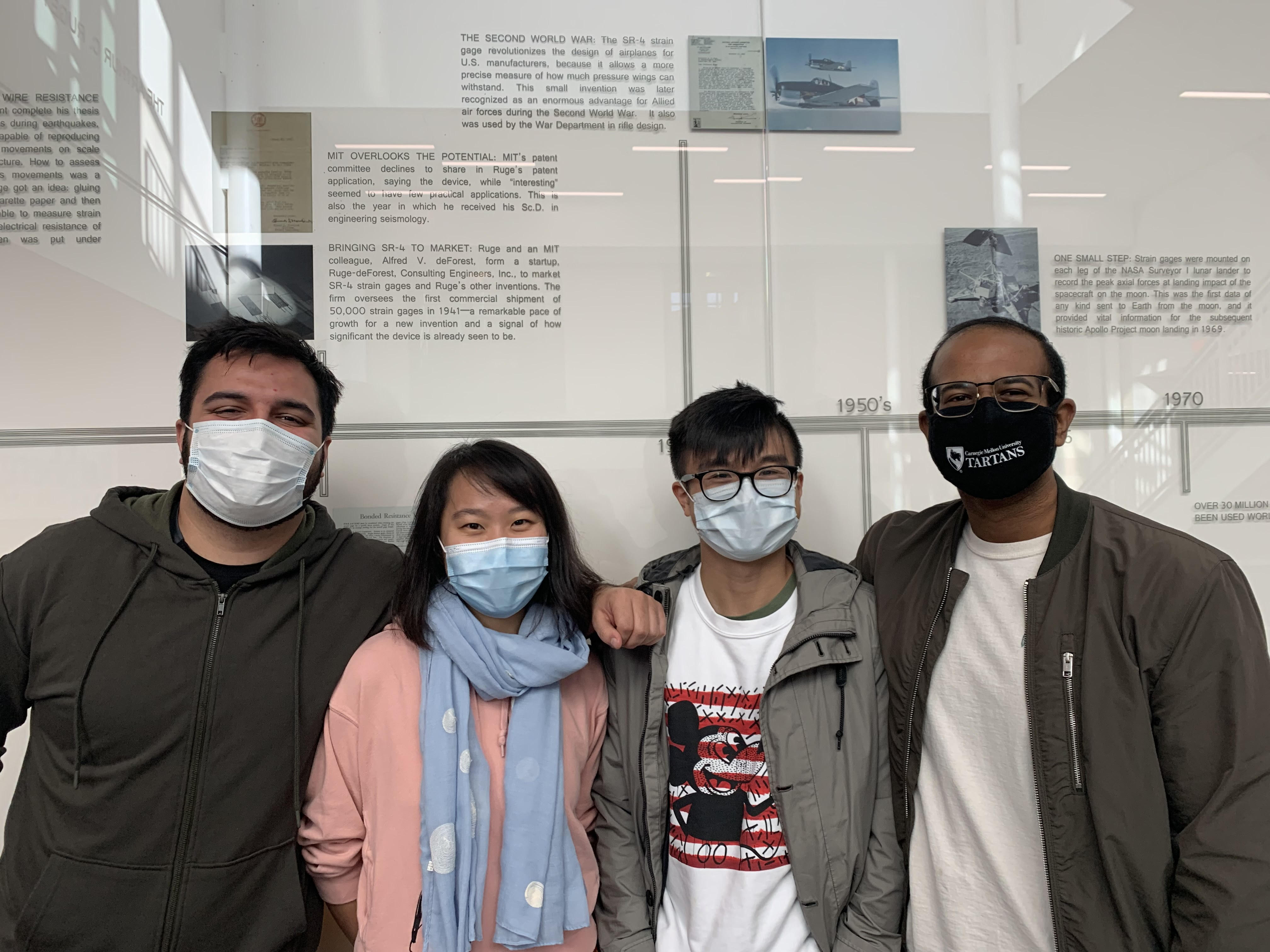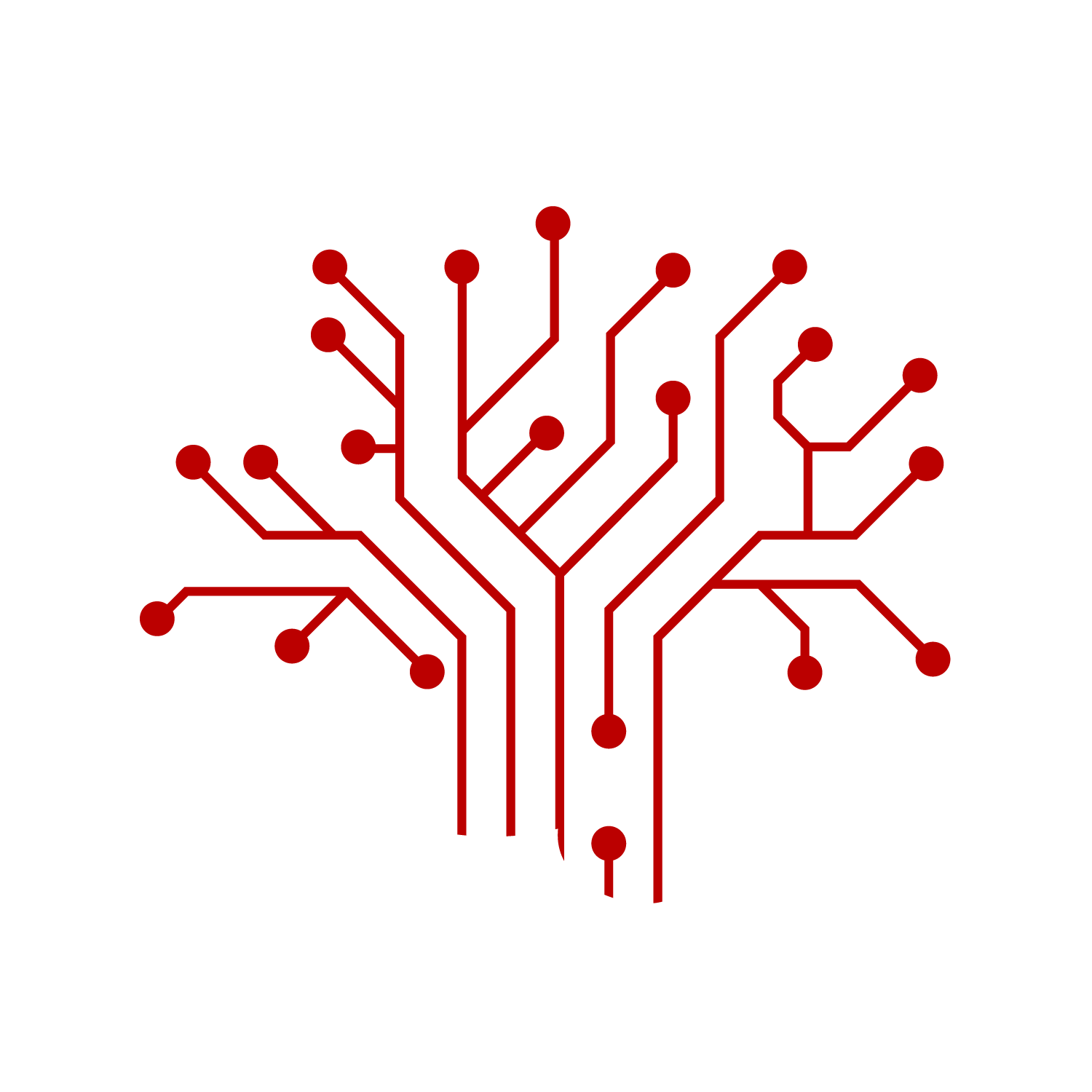First Cohort of PSN Students Start Strong
By Caroline Sheedy
The first cohort of students in the Program in Systems Neuroscience (PSN) have formed a strong community at Carnegie Mellon University this fall. Akhil Bandi, Emma Gao, Ruitong Jiang and Tomás Suárez Omedas are the first four students in the new program, which trains students with backgrounds in biology and neuroscience in quantitative systems neuroscience.
With one semester under their belt, the inaugural class has begun some exciting research. Gao, who studies early-stage Parkinson’s disease with Aryn Gittis, said she will have the opportunity to add a computational approach to her research.
“My PI is already talking about working with a mathematical professor to make a model based on our data, and I am really excited about that,” Gao said.
Gao plans to continue her research with Gittis for the duration of the program, but PSN students have the option to rotate through different labs at CMU and the University of Pittsburgh. Akhil Bandi, currently working with Caroline Runyan at Pitt, said that access to both universities is part of what made him want to be a part of the program.
“I want to emphasize the collaboration between CMU and the University of Pittsburgh. Carnegie Mellon has amazing computational labs and some good systems neuroscience labs, and Pitt has excellent neurobiology labs, like the lab that I’m in right now. It combines systems neuroscience and the neurobiology of competition.”
Jiang spent his first rotation working with J. Patrick Mayo at Pitt, designing a matrix to quantify neurons based on two types of eye movements. He said he has been impressed with the required coursework.
“CMU has provided us some classes that help prepare us for issues we will encounter in our research,” Jiang said. For example, I am taking a class this semester on experimental design [Experimental Design for Behavioral and Social Sciences]. We are learning statistical methods and how to optimally design experiments.”
As with the Program in Neural Computation (PNC), PSN is administered by the Neuroscience Institute, and benefits from a close relationship with the Center for the Neural Basis of Cognition. Omedas, who is currently working in Runyan lab with Bandi, said his cohort has formed a strong bond.
“I am enjoying connecting with researchers in many different disciplines,” Omedas said. “Together with the PCN students, we’ve found a good community.”


